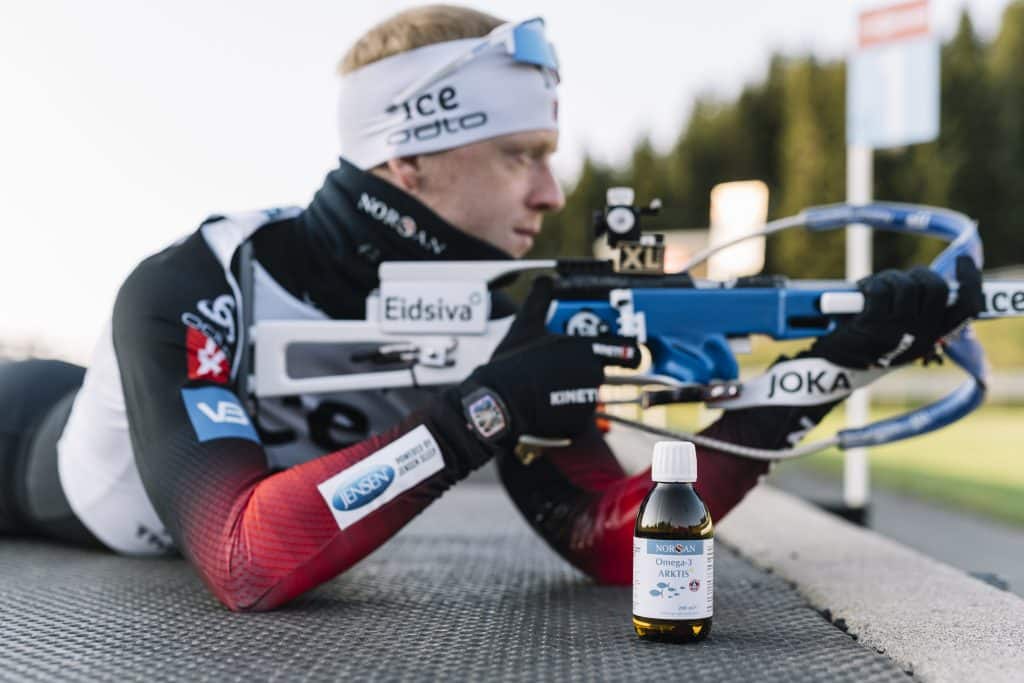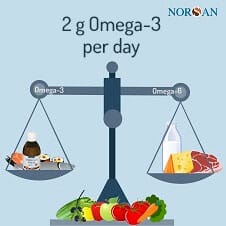Health philosophy
“Let food be thy medicine and medicine be thy food!”
-Hippokrates von Kos, ca. 400 v. Chr.
Like Hippocrates of Kos, we share the opinion that nutrition plays a crucial role in our health. Key cornerstones in our health philosophy are as follows:
- Keep your diet as natural as possible.
- There are – apart from industrial trans fats – no good or bad fats, only unfavorable ratios.
- Sugar, white flour and an excess of omega-6 fatty acids is a main cause of many health problems.
- Daily intake of a natural fish oil or vegetable algae oil high in omega-3 fatty acids is beneficial to our health.
What does NORSAN stand for?
NORSAN’s mission is twofold:
- To educate people about how fats work, especially the role of omega-3 fatty acids for our health.
- To develop and provide the best omega-3 products. Read here about our product philosophy.
The effect of omega-3 fatty acids

So does omega-3 help or not?
The answer is simple: omega-3 fatty acids don’t help if you don’t use them properly. Compare it to exercise, which most people see as a positive factor in one’s health. However, if someone jogs for 3 minutes every day or does a push-up every day, it is very likely that these actions will not significantly improve health. The situation is similar with omega-3.
What should be the dosage of omega-3?
For this reason, NORSAN takes the position that a sufficiently high dosage is necessary to achieve a desired health effect.
On the other hand, what effect occurs when taking 1-2 conventional omega-3 capsules with an omega-3 content of approx. 150 mg each? The clear answer is: none!
This is also the explanation for why studies keep turning up in which the intake of omega-3 showed no effect – the chosen dosage was too low.
Diagnostic Method – The Measurement of Success Instead of Just Hoping
What is omega-3 fatty acids all about? From our point of view, the focus is not on which capsules or which oil to take, but on ensuring that there are enough omega-3 fatty acids in the body. The first diagnostic step is therefore to measure the fatty acids in the body. Their ratio can be determined in a fatty acid analysis.

- Omega-6/3 ratio between 1:1 and 2.5:1
- Omega-3 index above 8
- Industrial trans-fat content below 0.5 %
Fatty acid measurement can also be used to evaluate the success of a dietary change that has been made. This step is helpful for NORSAN because this approach allows the effectiveness of an omega-3 supplement to be accurately monitored by laboratory blood values.
Incidentally, NORSAN was the first company in Germany to introduce this diagnostic method.
The structure of fatty acids in the body is a reflection of our diet
- Too high omega-6 arachidonic acid -> Less consumption of meat products.
- Too low omega-3 fatty acids -> Higher consumption of fish products
- Too high trans fatty acids -> Less consumption of industrially processed foods with trans fatty acids (“hydrogenated vegetable oils”)
